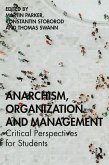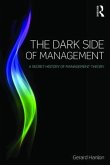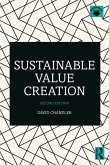Organizing Christmas is an exploration of the organizational character of Christmas. Taking as its starting point the view that Christmas initially achieved popularity due to its potential to promote social cohesion and political stability, this book both charts and scrutinizes its global emergence as the year's preeminent economic and organizational event.
Combining historical narrative, original interviews, and social scientific research and theories, it tells the story of how Christmas has come to dominate the festival landscape and how it emerged as an integral component of the global evolution of contemporary social and economic relations. From the pre-Christian celebrations and politics of the turning of the calendar year, through the power games of Elizabethan England and the wily reinvention of the season by industrious Victorians, to today's huge economic and logistical exercise that relies on everything from global supply chains to the domestic division of labour, Organizing Christmas demonstrates how the season exemplifies the spirit and practices of industrial, and now post-industrial, modernity.
As well as documenting this fact, however, Organizing Christmas also critically interrogates what has become a vast festive-industrial complex. From low-paid factory workers in Yiwu to Santa Claus performers in Kingston, readers are given a chance to consider what the cost of this global festival might be and whether it is a price worth paying. Drawing on intellectual resources ranging from Adorno and Horkheimer's classic critique of the culture industry, thorough Böhme's analysis of the sociomaterial production of atmospheres, to Bloch's 'principle of hope', it paints a picture of Christmas as a profoundly important, if deeply contested historical, cultural and, most significantly, organizational phenomenon.
Aimed at students and academics in Organization Studies, Cultural Studies, and the Sociology of Work and Employment, aswell as the general reader interested in the festive season, Organizing Christmas offers a differing perspective on a subject so familiar and yet so often overlooked.
Combining historical narrative, original interviews, and social scientific research and theories, it tells the story of how Christmas has come to dominate the festival landscape and how it emerged as an integral component of the global evolution of contemporary social and economic relations. From the pre-Christian celebrations and politics of the turning of the calendar year, through the power games of Elizabethan England and the wily reinvention of the season by industrious Victorians, to today's huge economic and logistical exercise that relies on everything from global supply chains to the domestic division of labour, Organizing Christmas demonstrates how the season exemplifies the spirit and practices of industrial, and now post-industrial, modernity.
As well as documenting this fact, however, Organizing Christmas also critically interrogates what has become a vast festive-industrial complex. From low-paid factory workers in Yiwu to Santa Claus performers in Kingston, readers are given a chance to consider what the cost of this global festival might be and whether it is a price worth paying. Drawing on intellectual resources ranging from Adorno and Horkheimer's classic critique of the culture industry, thorough Böhme's analysis of the sociomaterial production of atmospheres, to Bloch's 'principle of hope', it paints a picture of Christmas as a profoundly important, if deeply contested historical, cultural and, most significantly, organizational phenomenon.
Aimed at students and academics in Organization Studies, Cultural Studies, and the Sociology of Work and Employment, aswell as the general reader interested in the festive season, Organizing Christmas offers a differing perspective on a subject so familiar and yet so often overlooked.
"We all think we understand Christmas based on our own experiences and memories. It wasn't until I encountered Hancock's work that I learned how inadequate my own understandings were, and how surprised the ancient pagans, the early Christians, and even 19th-century merchants would have been with how Christmas continues to evolve and its varied roles in our lives. You will be fascinated and challenged by what you read here (and incidentally and importantly, I still believe in Santa Claus, of course)." Professor Jean M. Bartunek, Boston College, USA
"This book is unique, fascinating and thought-provoking. It provides a comprehensive overview of Christmas as a global phenomenon, followed by a critical analysis that places it within an organizational context. The book is a must-read not only for those interested in Christmas but also for those engaging in broader conversations about organization and organizing." Dr José-Carlos García-Rosell, Associate Professor, University of Lapland, Finland
"Christmas is capitalism in all its needy madness, but in this beautiful book, Hancock shows us why even the most miserable should pay it some serious attention. He both enchants and dissects the festival at the same time, showing the labour of Santa and the engineering of magic. I would be pleased to give this book to someone as a present. Just not at Xmas." Professor Martin Parker, University of Bristol, UK
"The best science engagements are those that highlight the amazing weirdness of that which we take for granted. Professor Hancock's book is exemplary social theory, and cunningly unpacks (sic) and problematizes the Christmas that we all know and thought we loved. This is social science at its finest!" Professor Alf Rehn, University of Southern Denmark, Denmark
"This book is unique, fascinating and thought-provoking. It provides a comprehensive overview of Christmas as a global phenomenon, followed by a critical analysis that places it within an organizational context. The book is a must-read not only for those interested in Christmas but also for those engaging in broader conversations about organization and organizing." Dr José-Carlos García-Rosell, Associate Professor, University of Lapland, Finland
"Christmas is capitalism in all its needy madness, but in this beautiful book, Hancock shows us why even the most miserable should pay it some serious attention. He both enchants and dissects the festival at the same time, showing the labour of Santa and the engineering of magic. I would be pleased to give this book to someone as a present. Just not at Xmas." Professor Martin Parker, University of Bristol, UK
"The best science engagements are those that highlight the amazing weirdness of that which we take for granted. Professor Hancock's book is exemplary social theory, and cunningly unpacks (sic) and problematizes the Christmas that we all know and thought we loved. This is social science at its finest!" Professor Alf Rehn, University of Southern Denmark, Denmark








